 Every once in a while an album emerges that blows your mind. "Hilarious Death Blues" (HDB) by Antic Clay is one such album. It's actually a debut double album. "A slow dark ride across the scorched hide of America. Think Johnny Cash riding a skeletal mule to Hell. Not without moments of beauty and hope, however". HDB is placed as number 1 on this list (opens in a new window). When I created the list, I couldn't possibly imagine there would be a follow-up album. In late 2017, a new Antic Clay-album called "Broom of Fire" was announced, to be released in 2018. It was originally scheduled in 2017 as a 10 year anniversary of the release of HDB. Antic Clay reassured that "fans of HDB will not be disappointed". This unexpected news created a buzz in the small dark (or gothic) americana community. Antic Clay added "What I am seriously contemplating is to launch a Kickstarter campaign. I’ve never done it, but I’ve watched and closely monitored such campaigns by other musician friends, who use social media to galvanize their fan base. I’ve already had several people encourage me to do this, with pledges of financial contribution in advance. This is heartening to be sure. Really it’s just a matter of me deciding to do it – and then doing it." This was five years ago. Setting up a Kickstarter campaign takes about five minutes. Is it happening at all? In December 2020 two songs were released on Bandcamp, "Center of the Night" and "Brother Wolf Sister Moon" (a cover). Antic Clay wrote: "Our goal is to press Brother Wolf Sister Moon and Center of the Night as a 12" vinyl single, and raise funds to create Broom of Fire in its entirety. We are entirely new to crowdfunding, so please stay tuned as we put all the necessary pieces in place." This was almost one and a half year ago. In March 2022 Antic Clay wrote "When Broom of Fire is completed this year, this song will be included". The song was "Elijah" (available on Youtube). Will the necessary pieces fall in place? "Broom of Fire" has turned into a potential 15 year anniversary. If the pieces fall in place, it will be interesting to see if Antic Clay still got the powers in him. However, I don't sense any HDB-vibe in the three above-mentioned songs. Why not release a lavish and limited 15-year anniversary album of HDB repackaged with thick booklet with trivia, lyrics and photos, re-mastered songs, alternate takes and unreleased songs instead?
Every once in a while an album emerges that blows your mind. "Hilarious Death Blues" (HDB) by Antic Clay is one such album. It's actually a debut double album. "A slow dark ride across the scorched hide of America. Think Johnny Cash riding a skeletal mule to Hell. Not without moments of beauty and hope, however". HDB is placed as number 1 on this list (opens in a new window). When I created the list, I couldn't possibly imagine there would be a follow-up album. In late 2017, a new Antic Clay-album called "Broom of Fire" was announced, to be released in 2018. It was originally scheduled in 2017 as a 10 year anniversary of the release of HDB. Antic Clay reassured that "fans of HDB will not be disappointed". This unexpected news created a buzz in the small dark (or gothic) americana community. Antic Clay added "What I am seriously contemplating is to launch a Kickstarter campaign. I’ve never done it, but I’ve watched and closely monitored such campaigns by other musician friends, who use social media to galvanize their fan base. I’ve already had several people encourage me to do this, with pledges of financial contribution in advance. This is heartening to be sure. Really it’s just a matter of me deciding to do it – and then doing it." This was five years ago. Setting up a Kickstarter campaign takes about five minutes. Is it happening at all? In December 2020 two songs were released on Bandcamp, "Center of the Night" and "Brother Wolf Sister Moon" (a cover). Antic Clay wrote: "Our goal is to press Brother Wolf Sister Moon and Center of the Night as a 12" vinyl single, and raise funds to create Broom of Fire in its entirety. We are entirely new to crowdfunding, so please stay tuned as we put all the necessary pieces in place." This was almost one and a half year ago. In March 2022 Antic Clay wrote "When Broom of Fire is completed this year, this song will be included". The song was "Elijah" (available on Youtube). Will the necessary pieces fall in place? "Broom of Fire" has turned into a potential 15 year anniversary. If the pieces fall in place, it will be interesting to see if Antic Clay still got the powers in him. However, I don't sense any HDB-vibe in the three above-mentioned songs. Why not release a lavish and limited 15-year anniversary album of HDB repackaged with thick booklet with trivia, lyrics and photos, re-mastered songs, alternate takes and unreleased songs instead?
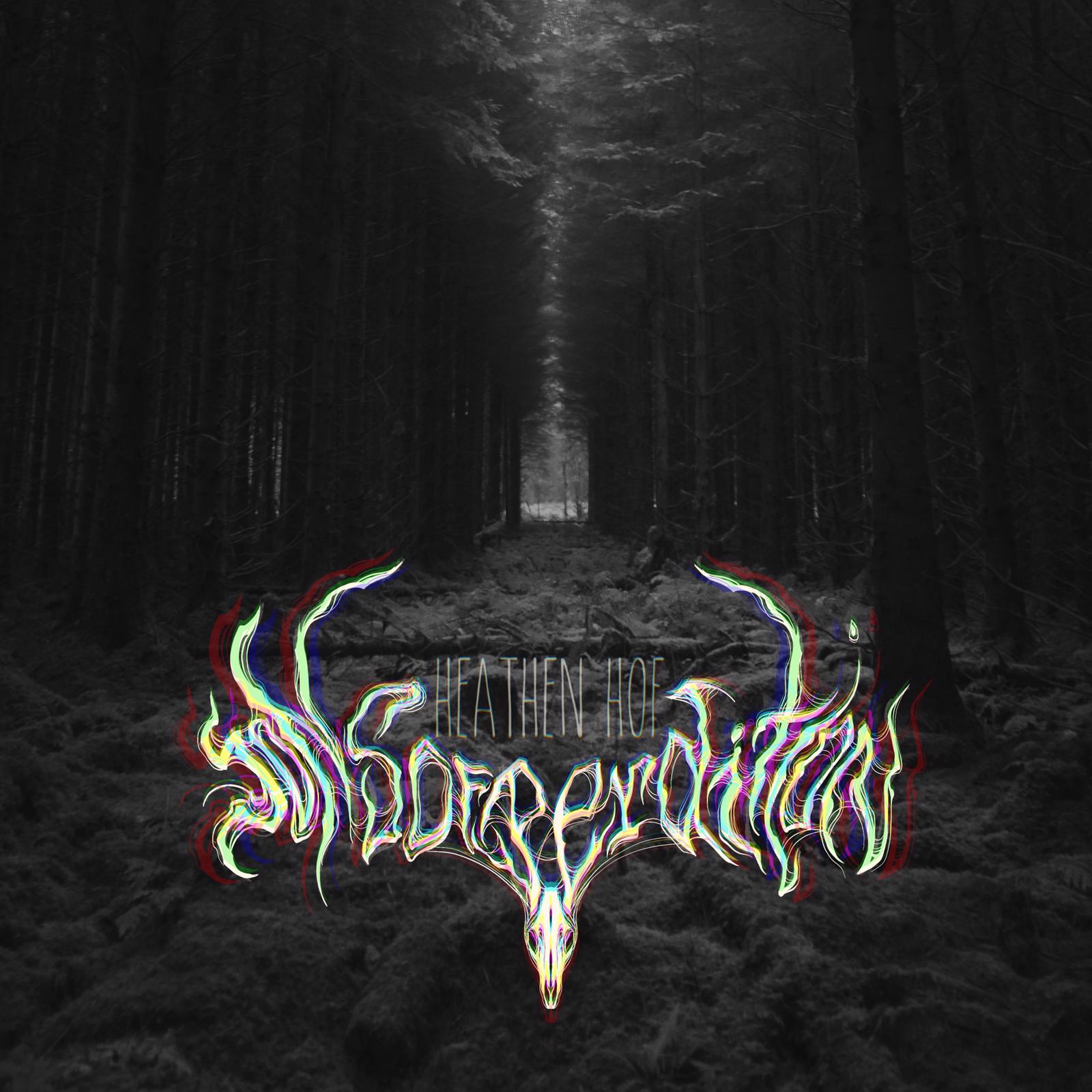 A heathen hof was a temple building of Germanic religion. The term hof is taken from Old Norse. "Heathen Hof" is also the title of Sons of Perdition's seventh album, which was released today. The release date is no coincidence. It's Beltane. The new album is also the second album by Sons of Perdition as an expanded band (or third album if you count "Fossils", the 2015 collaborative split with Jaran Hereid). The creative force and bandleader Zebulon Whatley wrote: "Heathen Hof is a small songbook of weird folk horror, largely written on detuned or entirely improvised instruments to capture the spirit of naive spiritual fervor that springs forth in isolation. It’s an album that draws heavily on Zebulon Whatley’s interest in British mythology as much as his upbringing in rural Texas and subsequent transplantation to Scotland. The album follows up on Sons of Perdition’s 2016 cosmic horror-themed album, Gathered Blood, pushing past the inherently horrific themes brought up in that album to further explore our relationship with the infinite." Six years is a long time in the gothic country genre. Lacy Rose (harmonium and piano) and Alex Hardie (drums) has left the band. The current lineup consists of Zebulon Whatley (words and sounds), Simon Broke (double bass) and Eli Rose (sounds and words). Sons of Perdition is, among other things, known for their spectacular album covers. The "Heathen Hof" cover is no exception. The album art is a photo taken by Irish photographer James Doherty. The logo is created by artist Gabbie Vasquez. "Heathen Hof" is only available digitally. You can listen to it and buy it at Bandcamp, just click here (opens in a new window).
A heathen hof was a temple building of Germanic religion. The term hof is taken from Old Norse. "Heathen Hof" is also the title of Sons of Perdition's seventh album, which was released today. The release date is no coincidence. It's Beltane. The new album is also the second album by Sons of Perdition as an expanded band (or third album if you count "Fossils", the 2015 collaborative split with Jaran Hereid). The creative force and bandleader Zebulon Whatley wrote: "Heathen Hof is a small songbook of weird folk horror, largely written on detuned or entirely improvised instruments to capture the spirit of naive spiritual fervor that springs forth in isolation. It’s an album that draws heavily on Zebulon Whatley’s interest in British mythology as much as his upbringing in rural Texas and subsequent transplantation to Scotland. The album follows up on Sons of Perdition’s 2016 cosmic horror-themed album, Gathered Blood, pushing past the inherently horrific themes brought up in that album to further explore our relationship with the infinite." Six years is a long time in the gothic country genre. Lacy Rose (harmonium and piano) and Alex Hardie (drums) has left the band. The current lineup consists of Zebulon Whatley (words and sounds), Simon Broke (double bass) and Eli Rose (sounds and words). Sons of Perdition is, among other things, known for their spectacular album covers. The "Heathen Hof" cover is no exception. The album art is a photo taken by Irish photographer James Doherty. The logo is created by artist Gabbie Vasquez. "Heathen Hof" is only available digitally. You can listen to it and buy it at Bandcamp, just click here (opens in a new window).

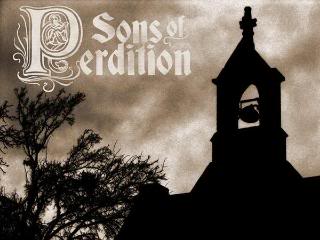 The sixth song, "Calling the Bees" is a trifle. The seventh song "In the Garden" is slow, dark and epic. It has every attribute you can ask for: slow pace, extreme darkness and well-written lyrics. "Clay turns to clay in the mouth of a skull / In a blanched jawbone / On clavicles like native flutes". The eight song, "Hallowed Blood From Hollow Beasts" also fit the bill with its dark streak. The ninth song is "The Flagellant". The song title refers to practitioners of a form of mortification of the flesh by whipping their skin with various instruments of penance, like leather whips with knots or metal pieces. Flagellants are expected to follow a number of very strict rules. They beat themselves, both in the privacy of their dwellings and in public processions, in order to repent of sins and share in the Passion of Jesus. It's still practised, but in a milder form than in medieval times. This is a song with dark distinct vocals and cracking whips. The lyrics are pretty grim. "Forsake not my vacant corpse / Which slumbers in the deep / And sing thee sweetly to my sleep / Visit me with offerings / And prayers that I may keep / Or at countless bedsides shall you weep". As always, the closing song of an album concludes what the artists want to say. The closing song should have a close connection to the themes and a scent of the atmosphere of the album. The tenth song is "Götterdämmerung" (German for Ragnarök, the submersion of the world in water). It's 13 minutes and 22 seconds long and instrumental. The song begins beautiful with a whining bullroarer, an ancient ritual musical instrument and a device historically used for communicating over great distances. The musical theme in the beginning is superb with strings, acoustic guitar and vinyl crackling in the background. The song then transcends into a different theme with chants, growl and strokes (in lack of a better term, gothic primordial). The initial theme returns in the last two and a half minutes. Needless to say, the arrangement and instrumentation are impeccable. The last tone fades away and it's over.
The sixth song, "Calling the Bees" is a trifle. The seventh song "In the Garden" is slow, dark and epic. It has every attribute you can ask for: slow pace, extreme darkness and well-written lyrics. "Clay turns to clay in the mouth of a skull / In a blanched jawbone / On clavicles like native flutes". The eight song, "Hallowed Blood From Hollow Beasts" also fit the bill with its dark streak. The ninth song is "The Flagellant". The song title refers to practitioners of a form of mortification of the flesh by whipping their skin with various instruments of penance, like leather whips with knots or metal pieces. Flagellants are expected to follow a number of very strict rules. They beat themselves, both in the privacy of their dwellings and in public processions, in order to repent of sins and share in the Passion of Jesus. It's still practised, but in a milder form than in medieval times. This is a song with dark distinct vocals and cracking whips. The lyrics are pretty grim. "Forsake not my vacant corpse / Which slumbers in the deep / And sing thee sweetly to my sleep / Visit me with offerings / And prayers that I may keep / Or at countless bedsides shall you weep". As always, the closing song of an album concludes what the artists want to say. The closing song should have a close connection to the themes and a scent of the atmosphere of the album. The tenth song is "Götterdämmerung" (German for Ragnarök, the submersion of the world in water). It's 13 minutes and 22 seconds long and instrumental. The song begins beautiful with a whining bullroarer, an ancient ritual musical instrument and a device historically used for communicating over great distances. The musical theme in the beginning is superb with strings, acoustic guitar and vinyl crackling in the background. The song then transcends into a different theme with chants, growl and strokes (in lack of a better term, gothic primordial). The initial theme returns in the last two and a half minutes. Needless to say, the arrangement and instrumentation are impeccable. The last tone fades away and it's over.
And finally, the overall assessment. This isn't an album you listen to while casually doing the dishes. It will require some effort on your part. If you are prepared to listen concentrated and focused, then you're in for a listening experience. However, I can live without the primordial influences in the music. Sons of Perdition are pursuing on their path of dreamy, evocative and experimental music. Still, it's downright depressive music. Zebulon Whatley also master the difficult art of placing songs in the right order on an album. This is a great album by any standards.

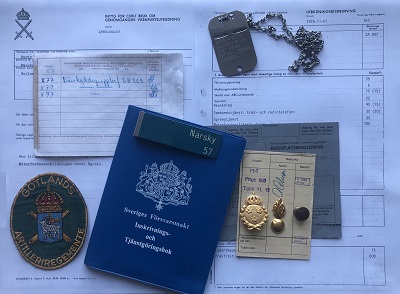 "Thank you for your service", abbreviated as TYFYS, is a saying that is used to express gratitude to those who have served in the U.S. armed forces. The saying seems well-intended, but can be perceived as controversial. Not all service members or military veterans want to be thanked. Exactly 40 years ago today, I was discharged from military service. To the extent that I am able to remember, no one has ever thanked me for my service in the Swedish Army. Maybe, I didn't earn it. I will come back to that. How did the Army get to me? It was the law. I was summoned and reviewed by the Conscription Agency (Värnpliktsverket). They were located in worn-down barracks in the outskirts of Solna, north of Stockholm. The mustering took two whole days with physical and psychological tests. The bored staff measured length and weight, physical condition, muscle strength (hand, elbow and knee), eyesight, colour and night vision. They also took urine and blood tests, and measured blood pressure. I still got my test protocol for the physical test. Obviously, it describes a more fit person. I weighed 75 kg (165 pounds) and scored average in the physical tests. The enrollment test (I-test), also called the intelligence or ability test, consisted of four parts: logical-inductive ability, verbal ability, spatial ability and technical understanding. The latter tests are normally not my strong suit. The psychological evaluation was rudimentary. The psychologists carried out many interviews and focused on sorting out military overinterested persons from obvious simulants. In those days, the law of conscription only applied to men. It was important to show up at the mustering. Otherwise, you could get a fine. All sorts were gathered: those who wanted an exemption warrant and those who wanted to join the Special forces. It was easy to tell who was who. Some were conscientious objectors and didn't want to serve at all (total refusal). Some wanted to serve, but not with weapons in hand (unarmed service). Most young men accepted to serve, albeit without any enthusiasm. To be honest, I was cautiously positive. You were allowed to make three requests. I requested Swedish Navy (classy), the Swedish Coastal Artillery, in Vaxholm (still pretty classy), and the Swedish Coastal Artillery, in Fårösund (still somewhat classy). My requests were not met. The Conscription Agency ignored all except the "Artillery" part. I was sent to Gotland Artillery Regiment (A7) in Visby, Gotland. Not classy.
"Thank you for your service", abbreviated as TYFYS, is a saying that is used to express gratitude to those who have served in the U.S. armed forces. The saying seems well-intended, but can be perceived as controversial. Not all service members or military veterans want to be thanked. Exactly 40 years ago today, I was discharged from military service. To the extent that I am able to remember, no one has ever thanked me for my service in the Swedish Army. Maybe, I didn't earn it. I will come back to that. How did the Army get to me? It was the law. I was summoned and reviewed by the Conscription Agency (Värnpliktsverket). They were located in worn-down barracks in the outskirts of Solna, north of Stockholm. The mustering took two whole days with physical and psychological tests. The bored staff measured length and weight, physical condition, muscle strength (hand, elbow and knee), eyesight, colour and night vision. They also took urine and blood tests, and measured blood pressure. I still got my test protocol for the physical test. Obviously, it describes a more fit person. I weighed 75 kg (165 pounds) and scored average in the physical tests. The enrollment test (I-test), also called the intelligence or ability test, consisted of four parts: logical-inductive ability, verbal ability, spatial ability and technical understanding. The latter tests are normally not my strong suit. The psychological evaluation was rudimentary. The psychologists carried out many interviews and focused on sorting out military overinterested persons from obvious simulants. In those days, the law of conscription only applied to men. It was important to show up at the mustering. Otherwise, you could get a fine. All sorts were gathered: those who wanted an exemption warrant and those who wanted to join the Special forces. It was easy to tell who was who. Some were conscientious objectors and didn't want to serve at all (total refusal). Some wanted to serve, but not with weapons in hand (unarmed service). Most young men accepted to serve, albeit without any enthusiasm. To be honest, I was cautiously positive. You were allowed to make three requests. I requested Swedish Navy (classy), the Swedish Coastal Artillery, in Vaxholm (still pretty classy), and the Swedish Coastal Artillery, in Fårösund (still somewhat classy). My requests were not met. The Conscription Agency ignored all except the "Artillery" part. I was sent to Gotland Artillery Regiment (A7) in Visby, Gotland. Not classy.
 I was almost 19 years old (same as the average age of an American combat soldier in the Vietnam war). No comparison intended. I took the night ferry from Nynäshamn to Visby on June 8th of 1981. I had just graduated from upper secondary school (approximately, high school) and there was no time to rest or adjust. I didn't know what to expect. The regiment was located outside the old town walls of Visby, which is arguably the best-preserved medieval town in Scandinavia and listed as an UNESCO World Heritage. We had been brought in to train and prepare for the new recruits coming in August. I belonged to the 1st ("school") company which had an inflated and well-preserved self-image. We were company, platoon or group commander cadets. I had been selected as close-range defence group commander cadet. In the summer, military service was just like a holiday in the sun. In the daytime we were conscripts. Outside "working hours" we were free to do what we wanted. A regular Army officer said "Kan man hälla upp, kan man ställa upp!" (it rhymes in Swedish, approximately "if you can pour-up, then you can line-up"). Not that we had any money to spend. You had a very low salary. There were economic benefits: family, housing and business allowance. I wasn't eligible for any of them. You were granted free and subsidized travels. The so-called "Vpl 10" allowed you to travel anywhere in Sweden for SEK 10 (in those days about $4). Visby in the summer was like Ibiza. You could easily blend in with the tourists. The only thing that could give you away was your black military shoes (m/60). At the mustering you were asked about your driver license plans. Well, plans were just plans. The captain of the motor vehicle division asked how many of us that, still, didn't have a driver license. About 10-15 of us raised our hands, including me. Well, he said: "Your driver can be shot and then you must be able to drive the vehicle." Then he divided us into two groups and sent us to Visby's two private driving schools. It was easy money for them and they didn't care about conscripts. My driving teacher had his rearview mirrors fixed at the sidewalks so he could look at girls. I aced the theory test, but failed the driving test. I knew very well that I ran a yellow light, crossed a solid white line and was speeding, but I hoped the civilian inspector would give me the benefit of the doubt. He didn't. I succeeded at the second attempt. This time the captain of the motor vehicle division was the inspector. He was a no nonsense man. We drove out from the eastern gates of the regiment. Right, he said. I drove a couple of hundred meters. Right, he said again. I drove a couple of hundred meters. Right, he said a third time. I drove a couple of hundred meters and approached the western gates of the regiment. Right, he said. I stuttered: but, but then we will come back to the regiment. Yes, that's right, he said. I got my driver license. Thank you, Army!
I was almost 19 years old (same as the average age of an American combat soldier in the Vietnam war). No comparison intended. I took the night ferry from Nynäshamn to Visby on June 8th of 1981. I had just graduated from upper secondary school (approximately, high school) and there was no time to rest or adjust. I didn't know what to expect. The regiment was located outside the old town walls of Visby, which is arguably the best-preserved medieval town in Scandinavia and listed as an UNESCO World Heritage. We had been brought in to train and prepare for the new recruits coming in August. I belonged to the 1st ("school") company which had an inflated and well-preserved self-image. We were company, platoon or group commander cadets. I had been selected as close-range defence group commander cadet. In the summer, military service was just like a holiday in the sun. In the daytime we were conscripts. Outside "working hours" we were free to do what we wanted. A regular Army officer said "Kan man hälla upp, kan man ställa upp!" (it rhymes in Swedish, approximately "if you can pour-up, then you can line-up"). Not that we had any money to spend. You had a very low salary. There were economic benefits: family, housing and business allowance. I wasn't eligible for any of them. You were granted free and subsidized travels. The so-called "Vpl 10" allowed you to travel anywhere in Sweden for SEK 10 (in those days about $4). Visby in the summer was like Ibiza. You could easily blend in with the tourists. The only thing that could give you away was your black military shoes (m/60). At the mustering you were asked about your driver license plans. Well, plans were just plans. The captain of the motor vehicle division asked how many of us that, still, didn't have a driver license. About 10-15 of us raised our hands, including me. Well, he said: "Your driver can be shot and then you must be able to drive the vehicle." Then he divided us into two groups and sent us to Visby's two private driving schools. It was easy money for them and they didn't care about conscripts. My driving teacher had his rearview mirrors fixed at the sidewalks so he could look at girls. I aced the theory test, but failed the driving test. I knew very well that I ran a yellow light, crossed a solid white line and was speeding, but I hoped the civilian inspector would give me the benefit of the doubt. He didn't. I succeeded at the second attempt. This time the captain of the motor vehicle division was the inspector. He was a no nonsense man. We drove out from the eastern gates of the regiment. Right, he said. I drove a couple of hundred meters. Right, he said again. I drove a couple of hundred meters. Right, he said a third time. I drove a couple of hundred meters and approached the western gates of the regiment. Right, he said. I stuttered: but, but then we will come back to the regiment. Yes, that's right, he said. I got my driver license. Thank you, Army!
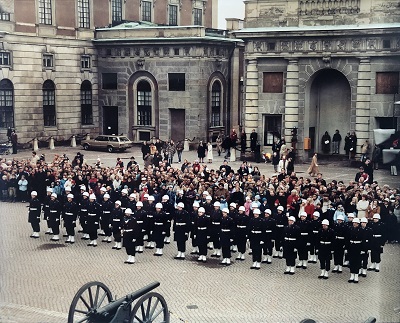 The military initiation rites were inherited from one age group to another, including the acronyms. The new recruits arrived in August. They were greeted by a long and hissing s-sound. They were nicknamed "SOLIS" meaning "så oändligt långt innan slutet" (approximately, "so infinite long before the end"). Another name was "glitterpinne" (approximately, "glitterstick"). "You shine today". Some of the hecklers wore sun-glasses to underline their point. The private soldiers that had less than 90 days left of their service were called "BASSE", meaning "berättigad att se 'solis' exercera" (approximately, "entitled to watch 'solis' exercise"). The ones that had less than 10 days left of their service were in turn called "ATOM", meaning "Alla Talar Om Muck" (approximately, "Everybody speaks about military discharge"). And last, but not least, "MUCK", meaning "Militär Utryckning Civila Kläder" (approximately, "military discharge civilian clothes"). In those days, Visby closed for the season in the middle of August. The tourists went home and restaurants and bars put up their shutters. Visby in the fall, winter and early spring isn't like Ibiza. Rain and storms are frequent. The hard wind "marsgaist" is a well-known phenomenom. Humid cold is the worst kind of cold. There was no point of trying to blend in. Everybody knew that you were a conscript. Monotony came creeping. I began to run in the jogging tracks and swam at the indoor swimming center. A break from the monotony came when we served as The Royal Guards (Swedish: Högvakten). Since 1523 it's the King of Sweden's cavalry and infantry guards of honour of the Swedish Armed Forces, tasked with the protection of the Swedish Royal Family. The strangest thing happened in Stockholm. I was placed in the stand-by security force. Late one night, a guard pushed his alarm button. We ran to his guard post at Slottsbacken. Two mysterious men in ragged clothes had approached the guard and refused to leave. The security force commander told them to leave or else they would be apprehended. They didn't obey. The commander gave us order to apprehend them. Duty done. The men didn't resist. Much to everyone's surprise, the "two men" were in fact two girls with fake moustache on their way home from a booze-drenched masquerade. They began to cry and begged for their release. The security force commander could have been the bigger person and said: "This was a bad idea. Don't do this again. Next time there will be consequences. Now off you go." But, he followed protocol and called the police. The police came and had their "don't you think we have better things to do" expression on their faces. Hopefully, they released the girls after they were out of sight.
The military initiation rites were inherited from one age group to another, including the acronyms. The new recruits arrived in August. They were greeted by a long and hissing s-sound. They were nicknamed "SOLIS" meaning "så oändligt långt innan slutet" (approximately, "so infinite long before the end"). Another name was "glitterpinne" (approximately, "glitterstick"). "You shine today". Some of the hecklers wore sun-glasses to underline their point. The private soldiers that had less than 90 days left of their service were called "BASSE", meaning "berättigad att se 'solis' exercera" (approximately, "entitled to watch 'solis' exercise"). The ones that had less than 10 days left of their service were in turn called "ATOM", meaning "Alla Talar Om Muck" (approximately, "Everybody speaks about military discharge"). And last, but not least, "MUCK", meaning "Militär Utryckning Civila Kläder" (approximately, "military discharge civilian clothes"). In those days, Visby closed for the season in the middle of August. The tourists went home and restaurants and bars put up their shutters. Visby in the fall, winter and early spring isn't like Ibiza. Rain and storms are frequent. The hard wind "marsgaist" is a well-known phenomenom. Humid cold is the worst kind of cold. There was no point of trying to blend in. Everybody knew that you were a conscript. Monotony came creeping. I began to run in the jogging tracks and swam at the indoor swimming center. A break from the monotony came when we served as The Royal Guards (Swedish: Högvakten). Since 1523 it's the King of Sweden's cavalry and infantry guards of honour of the Swedish Armed Forces, tasked with the protection of the Swedish Royal Family. The strangest thing happened in Stockholm. I was placed in the stand-by security force. Late one night, a guard pushed his alarm button. We ran to his guard post at Slottsbacken. Two mysterious men in ragged clothes had approached the guard and refused to leave. The security force commander told them to leave or else they would be apprehended. They didn't obey. The commander gave us order to apprehend them. Duty done. The men didn't resist. Much to everyone's surprise, the "two men" were in fact two girls with fake moustache on their way home from a booze-drenched masquerade. They began to cry and begged for their release. The security force commander could have been the bigger person and said: "This was a bad idea. Don't do this again. Next time there will be consequences. Now off you go." But, he followed protocol and called the police. The police came and had their "don't you think we have better things to do" expression on their faces. Hopefully, they released the girls after they were out of sight.
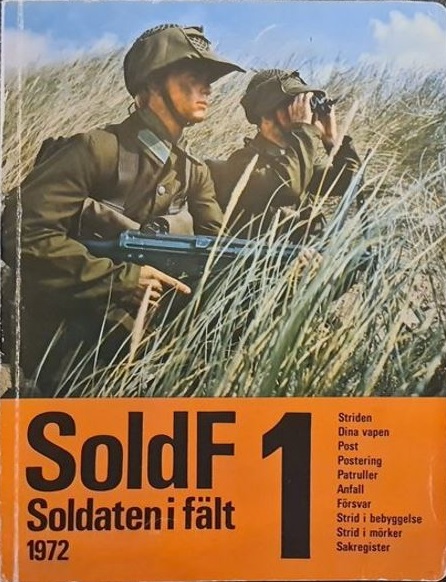
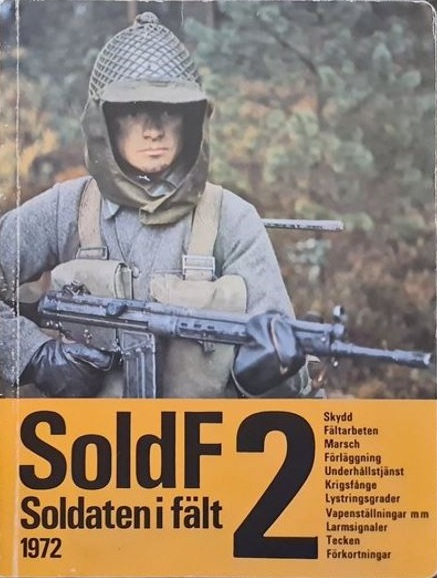
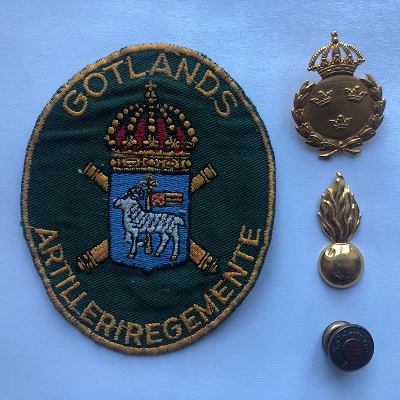 My military discharge was followed by a wartime posting. The war posting card specified where you should report for duty in case of war. More specifically it indicated which mobilization depot you should go to. In March 1985, I was summoned for a three-week repetition exercise. I was studying at university and applied for a respite. My application was rejected. A reluctant student reported for duty. Of course, it turned out that I had been incorrectly selected for service. I wanted to get back to my studies, but the commanders said no. They said: "now that you are here, you might as well do the best of it." I'm not good at doing the best of things. The other guys were a couple of years older than me and enjoyed to get away from their boring jobs and families. I was angry and obstinate. I didn't fit in. When I got back to university, I barely passed the university course. In March 1989, I was summoned for a two-week excercise. I was at the end of my studies and writing my final thesis. I was not exactly mindful, but no drama this time. After the second exercise, I was never summoned again. There was no money for exercises. The Cold War was over and the threat scenario had changed. Military spending in Sweden was drastically cut and many old regiments were closed down. Peacetime conscription was deactivated between 2010 and 2017. The downgrading of the armed forces was a huge mistake. In 2017, the Swedish government decided to reactivate military conscription, referencing increased threats to national security. Now the threat scenario has changed for the worse. As the saying goes: "Every country has an army, their own or someone else's". Sweden isn't a member of NATO, but engaged in peace-support operations, exercises and exchange analysis and information. An important priority is to ensure interoperable capabilities, maintaining the ability of the Swedish Armed Forces to work with NATO. This was unthinkable in the early 1980s. Now we are considering joining NATO. Another bilateral committment is open to interpretation, namely Article 222 in the Treaty on the Functioning of the European Union. This demands EU members to act jointly and to assist one another in the face of disasters, emergencies, and crises on the European continent. What this means, nobody really knows. 40 years ago today, I walked through the regiment gates for the last time. Ironically, the Falklands War started the same day. The guys in the close-range defense platoon met a few times after military discharge, but then we all went on with our lives. Memory is selective. Positive memories are remembered, while negative memories are forgotten. Not in this case. What I remember is standing wet and cold on a windy firing ground fervently wishing I was somewhere else. When you were there, you had a lot of time to think of who mattered in your life. Well, do I deserve a thank you or not? It's hard to assess. On one hand, I received the military gold medal (fältidrottsmärke) and the soldier test pin (soldatprov). The latter test is a 30 km (18,6 miles) march with packing during 8 hours, and solving a number of tasks. Later in working life, I received the evaluative judgment "easy to subordinate himself in hierarchical organizations". On the other hand, I was not completely docile. I was probably not good soldier material. After all, I was placed as cannon fodder. Not classy. I was discharged from military service with the standard credentials 10-7-7 (behaviour, suitability for the position and knowledge and skills). I have always aimed at mediocrity. The daily salary was SEK 18 and the discharge pay amounted to SEK 1500 (in those days about $5 and $460, respectively). For minimum wage you get minimum effort. Unservice is a obsolote term meaning idleness, indolence and neglect of service or duty. I think it's safe to say "Thank you for your unservice".
My military discharge was followed by a wartime posting. The war posting card specified where you should report for duty in case of war. More specifically it indicated which mobilization depot you should go to. In March 1985, I was summoned for a three-week repetition exercise. I was studying at university and applied for a respite. My application was rejected. A reluctant student reported for duty. Of course, it turned out that I had been incorrectly selected for service. I wanted to get back to my studies, but the commanders said no. They said: "now that you are here, you might as well do the best of it." I'm not good at doing the best of things. The other guys were a couple of years older than me and enjoyed to get away from their boring jobs and families. I was angry and obstinate. I didn't fit in. When I got back to university, I barely passed the university course. In March 1989, I was summoned for a two-week excercise. I was at the end of my studies and writing my final thesis. I was not exactly mindful, but no drama this time. After the second exercise, I was never summoned again. There was no money for exercises. The Cold War was over and the threat scenario had changed. Military spending in Sweden was drastically cut and many old regiments were closed down. Peacetime conscription was deactivated between 2010 and 2017. The downgrading of the armed forces was a huge mistake. In 2017, the Swedish government decided to reactivate military conscription, referencing increased threats to national security. Now the threat scenario has changed for the worse. As the saying goes: "Every country has an army, their own or someone else's". Sweden isn't a member of NATO, but engaged in peace-support operations, exercises and exchange analysis and information. An important priority is to ensure interoperable capabilities, maintaining the ability of the Swedish Armed Forces to work with NATO. This was unthinkable in the early 1980s. Now we are considering joining NATO. Another bilateral committment is open to interpretation, namely Article 222 in the Treaty on the Functioning of the European Union. This demands EU members to act jointly and to assist one another in the face of disasters, emergencies, and crises on the European continent. What this means, nobody really knows. 40 years ago today, I walked through the regiment gates for the last time. Ironically, the Falklands War started the same day. The guys in the close-range defense platoon met a few times after military discharge, but then we all went on with our lives. Memory is selective. Positive memories are remembered, while negative memories are forgotten. Not in this case. What I remember is standing wet and cold on a windy firing ground fervently wishing I was somewhere else. When you were there, you had a lot of time to think of who mattered in your life. Well, do I deserve a thank you or not? It's hard to assess. On one hand, I received the military gold medal (fältidrottsmärke) and the soldier test pin (soldatprov). The latter test is a 30 km (18,6 miles) march with packing during 8 hours, and solving a number of tasks. Later in working life, I received the evaluative judgment "easy to subordinate himself in hierarchical organizations". On the other hand, I was not completely docile. I was probably not good soldier material. After all, I was placed as cannon fodder. Not classy. I was discharged from military service with the standard credentials 10-7-7 (behaviour, suitability for the position and knowledge and skills). I have always aimed at mediocrity. The daily salary was SEK 18 and the discharge pay amounted to SEK 1500 (in those days about $5 and $460, respectively). For minimum wage you get minimum effort. Unservice is a obsolote term meaning idleness, indolence and neglect of service or duty. I think it's safe to say "Thank you for your unservice".
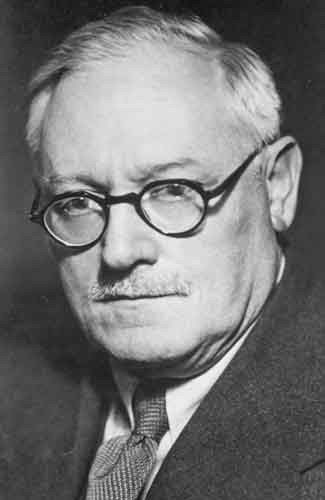 "The law is reason, free from passion... Man, when perfected, is the best of animals, but when separated from law and justice, he is the worst of all." These famous lines by Greek philopsopher Aristotle is often quoted in law studies. In my senior year in upper secondary school (approximately, high school) I went on a study visit to Juridicum (Faculty of Law) in Uppsala. I had no personal interest, just tagged along. The closest I ever got to law studies was a girlfriend who studied law. I used to read the court cases and ask questions about legal issues. I wasn't a good study buddy. My legal instinct was poor. I always wanted to free the guilty and convict the innocent. However, I learned enough to understand that law is relative, contextual and useful. The Moscow show trials 1936-1938 is an example of how law can be used. The chief prosecutor Andrey Vyshinsky had a leading role in the trials where people were staged guilty and shot by orders of Stalin. In a frantic outburst he exclaimed: "Shoot these rabid dogs. Death to this gang who hide their ferocious teeth, their eagle claws, from the people! Down with that vulture Trotsky, from whose mouth a bloody venom drips, putrefying the great ideals of Marxism!... Down with these abject animals! Let's put an end once and for all to these miserable hybrids of foxes and pigs, these stinking corpses! Let's exterminate the mad dogs of capitalism, who want to tear to pieces the flower of our new Soviet nation! Let's push the bestial hatred they bear our leaders back down their own throats!!" Reason, free from passion? The Moscow trials and the strange life of Andrey Vyshinsky is covered elsewhere so I will not go further into that. Vyshinsky introduced a new type of trial where there was no need for any evidence: what evidence did you need when you were dealing with "stinking carrion" and "rabid dogs". Bertold Brecht made a classic cynical remark. "The more innocent they are, the more they deserve to be shot." This could be interpreted as anyone who had failed to conspire against Stalin deserved to be shot. 54 people were brought to the Moscow trials, of which 47 were sentenced to death and long prison sentences were handed down to the rest. The accused played their parts, admitting to co-operating with foreign intelligence services, conspiracies and apostasy. And they all confessed, except one. He was executed anyway.
"The law is reason, free from passion... Man, when perfected, is the best of animals, but when separated from law and justice, he is the worst of all." These famous lines by Greek philopsopher Aristotle is often quoted in law studies. In my senior year in upper secondary school (approximately, high school) I went on a study visit to Juridicum (Faculty of Law) in Uppsala. I had no personal interest, just tagged along. The closest I ever got to law studies was a girlfriend who studied law. I used to read the court cases and ask questions about legal issues. I wasn't a good study buddy. My legal instinct was poor. I always wanted to free the guilty and convict the innocent. However, I learned enough to understand that law is relative, contextual and useful. The Moscow show trials 1936-1938 is an example of how law can be used. The chief prosecutor Andrey Vyshinsky had a leading role in the trials where people were staged guilty and shot by orders of Stalin. In a frantic outburst he exclaimed: "Shoot these rabid dogs. Death to this gang who hide their ferocious teeth, their eagle claws, from the people! Down with that vulture Trotsky, from whose mouth a bloody venom drips, putrefying the great ideals of Marxism!... Down with these abject animals! Let's put an end once and for all to these miserable hybrids of foxes and pigs, these stinking corpses! Let's exterminate the mad dogs of capitalism, who want to tear to pieces the flower of our new Soviet nation! Let's push the bestial hatred they bear our leaders back down their own throats!!" Reason, free from passion? The Moscow trials and the strange life of Andrey Vyshinsky is covered elsewhere so I will not go further into that. Vyshinsky introduced a new type of trial where there was no need for any evidence: what evidence did you need when you were dealing with "stinking carrion" and "rabid dogs". Bertold Brecht made a classic cynical remark. "The more innocent they are, the more they deserve to be shot." This could be interpreted as anyone who had failed to conspire against Stalin deserved to be shot. 54 people were brought to the Moscow trials, of which 47 were sentenced to death and long prison sentences were handed down to the rest. The accused played their parts, admitting to co-operating with foreign intelligence services, conspiracies and apostasy. And they all confessed, except one. He was executed anyway.
